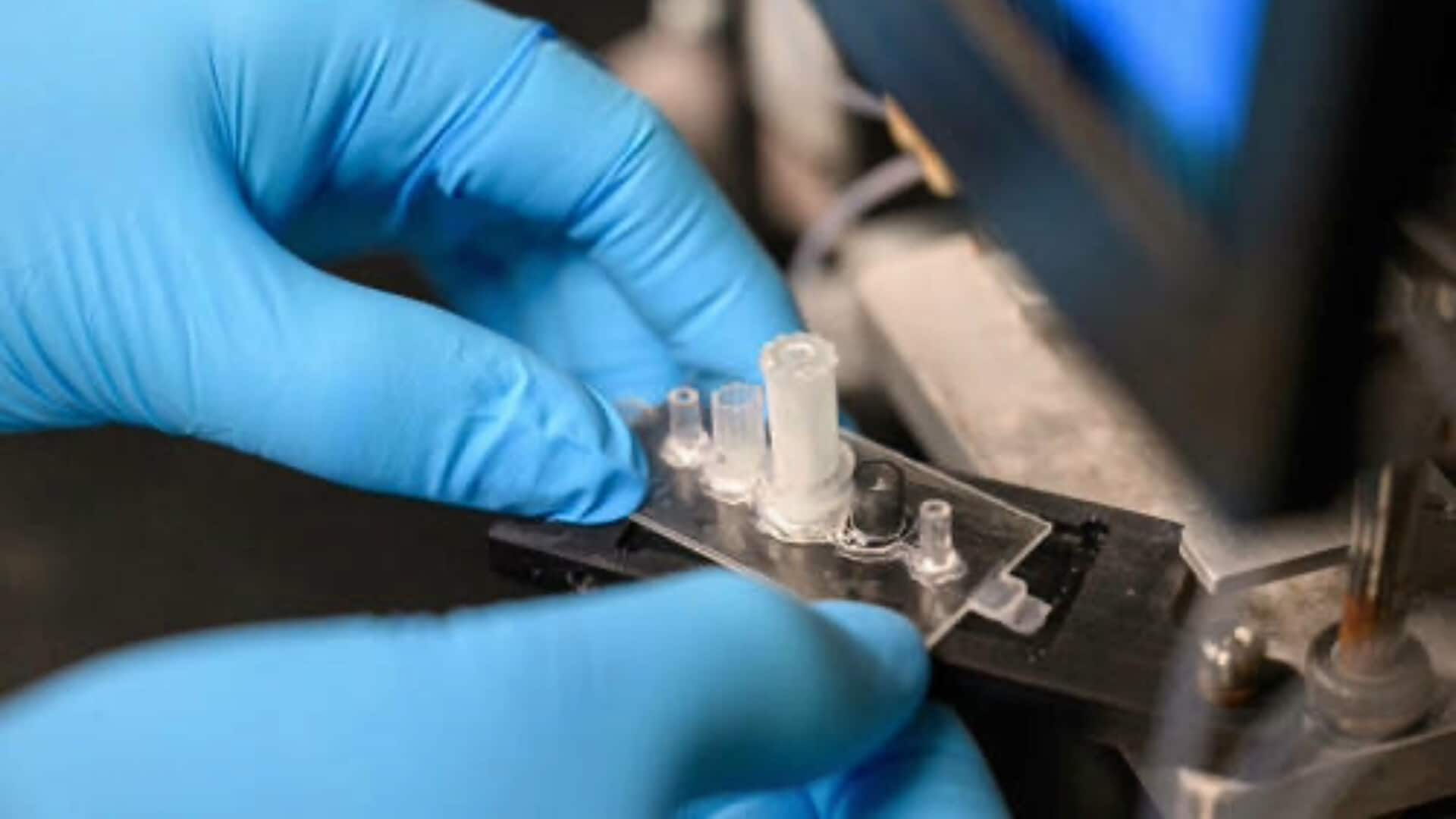
This blood test can diagnose brain cancer within 60 minutes
What's the story
A team of researchers at the University of Notre Dame, US has developed a groundbreaking blood test device. This innovative tool is designed for the early detection of glioblastoma, a lethal form of brain cancer. The test can identify signs of this disease within just one hour, using only a small sample of blood (approximately 100 microliters).
Disease details
Glioblastoma: A deadly brain cancer
Glioblastoma is recognized as an aggressive and malignant type of brain cancer. Most patients diagnosed with this condition only survive for 12-18 months post-detection. The standard method for diagnosing glioblastoma involves an invasive biopsy, which needs extracting a tissue sample from the tumor for microscopic examination. This new blood test could potentially revolutionize early-stage identification when symptoms first appear.
Test mechanism
The science behind the new test
The blood test is conducted using an automated device equipped with a tiny biochip. This chip, around the size of a ball in a ballpoint pen, employs an electrokinetic sensor. The sensor uses electricity to move charged particles in a fluid, and in this diagnostic tool, it captures and detects extracellular vesicles that contain disease-associated biomarkers known as Epidermal Growth Factor Receptors (EGFRs).
Detection accuracy
Biochip's sensitivity and selectivity
The biochip used in the blood test is highly sensitive and selective. It can differentiate between active and non-active EGFRs. The antibodies on the sensor bind to multiple extracellular vesicles, enhancing detection accuracy. Following this, silica nanoparticles act as indicators, which signal the presence of active EGFRs on captured vesicles. A change in voltage indicates glioblastoma presence, linked to extracellular vesicles with active EGFRs.
Future prospects
Potential applications of the device
If widely adopted, this device could significantly improve early detection rates and potentially increase survival chances for patients. The research team is optimistic about the future applications of this technology. They hope it could be used to detect biomarkers for other diseases like pancreatic cancer, cardiovascular disease, dementia, and even epilepsy.